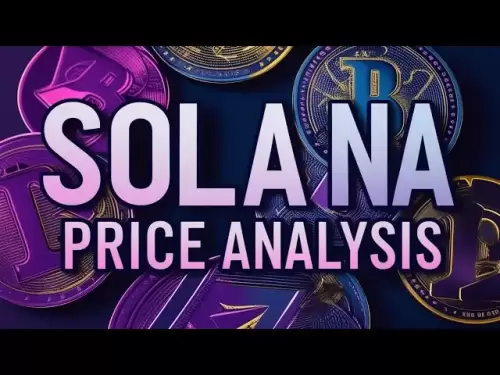 |
|
 |
|
 |
|
 |
|
 |
|
 |
|
 |
|
 |
|
 |
|
 |
|
 |
|
 |
|
 |
|
 |
|
 |
|
Cryptocurrency News Articles
Bitcoin, Money Laundering, and Embezzlement: A Criminal's Best Friend?
Jul 28, 2025 at 08:46 am
Recent cases highlight Bitcoin's use in money laundering and embezzlement, raising concerns about regulatory oversight and corporate vulnerabilities. Are stricter measures needed?

Yo, crypto enthusiasts and concerned citizens! Let's dive into the murky world where Bitcoin, money laundering, and embezzlement collide. It's a wild ride, so buckle up!
Bitcoin's Dark Side: A Magnet for Criminals?
Bitcoin, the digital gold of the 21st century, has unfortunately attracted some unwanted attention. While it offers legitimate uses, its pseudo-anonymous nature has made it a tool of choice for those looking to hide illicit funds. The recent case in Beijing, where a former employee embezzled a staggering 140 million RMB, showcases this perfectly. Feng, the mastermind, exploited loopholes and converted the stolen funds into Bitcoin via overseas exchanges. Talk about a sophisticated scheme!
The Coin Mixing Conundrum
To make matters even more complex, criminals are using "coin mixing" techniques to scramble transaction paths. It's like trying to follow a plate of spaghetti—virtually impossible! This tactic makes tracing the origins of dirty money incredibly difficult, posing a significant challenge for law enforcement. It’s a digital cat-and-mouse game, and the stakes are high.
Tornado Cash: Privacy Tool or Criminal Haven?
The trial of Roman Storm, a developer of Tornado Cash, is a major point of contention. Was he simply providing a privacy tool, or knowingly aiding criminals? Prosecutors argue that Storm turned a blind eye to the platform's misuse, even tweaking it to better suit illicit activities. The defense counters that Storm's creation was intended for privacy, and the misuse by bad actors doesn't negate its legitimate uses. Think of it like a hammer: it can build a house or break into one. Where do we draw the line?
North Korea's Crypto Capers
It's not just petty criminals getting in on the action. North Korean nationals have been charged with using crypto embezzlement schemes to fund their regime's weapons development. They posed as remote IT workers, infiltrating companies and siphoning off digital assets. They used Tornado Cash to cover their tracks, transferring the funds to crypto exchanges under fake identities. The FBI is even offering a reward of up to $5 million for information leading to their arrest! This is some serious international intrigue.
Corporate Vulnerabilities and Red Flags
These cases highlight the importance of robust cybersecurity and internal audits. Companies need to vet remote employees thoroughly, looking for red flags like resistance to video calls or keyboard settings defaulted to Korean. As U.S. Attorney Theodore S. Hertzberg wisely put it, "Remote workers known only through online chats or video calls may not be who they say they are." Words to live by, folks.
A Final Rally for Bitcoin? Or a Regulatory Reckoning?
While all this criminal activity is concerning, let's not forget the potential for Bitcoin to surge. Some analysts are predicting a final rally phase, with Bitcoin potentially reaching $160,000 by year-end. But could increased regulatory scrutiny, driven by these very money laundering and embezzlement cases, throw a wrench in those plans? Only time will tell.
The Bottom Line
Bitcoin's use in money laundering and embezzlement is a growing concern. Stricter regulations, enhanced corporate security measures, and increased law enforcement efforts are needed to combat this problem. Otherwise, Bitcoin risks becoming synonymous with illicit activity, which would be a shame for such a potentially transformative technology.
So, what's the takeaway? Keep your eyes peeled, stay informed, and maybe invest in a good VPN. The world of crypto is a wild west, and you need to protect yourself. Until next time, stay safe and keep those sats secure!
Disclaimer:info@kdj.com
The information provided is not trading advice. kdj.com does not assume any responsibility for any investments made based on the information provided in this article. Cryptocurrencies are highly volatile and it is highly recommended that you invest with caution after thorough research!
If you believe that the content used on this website infringes your copyright, please contact us immediately (info@kdj.com) and we will delete it promptly.





























































